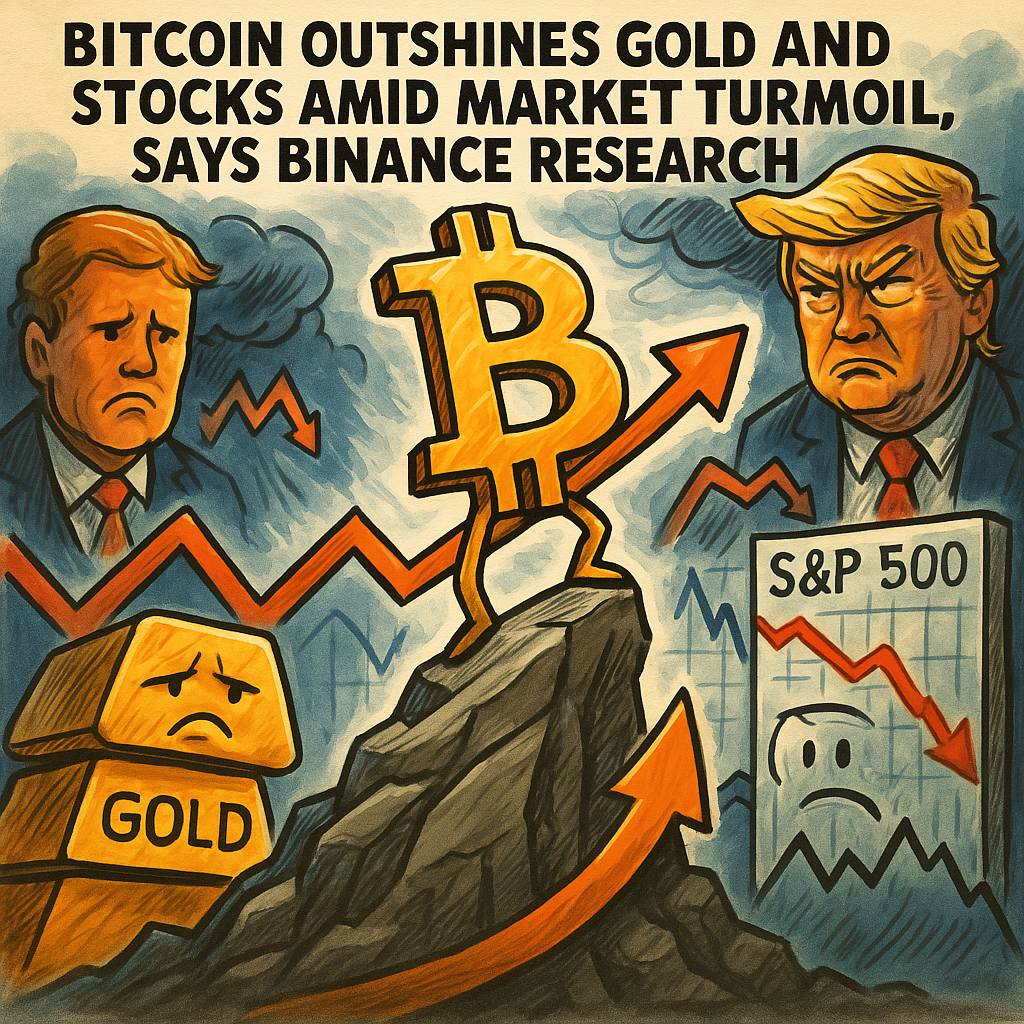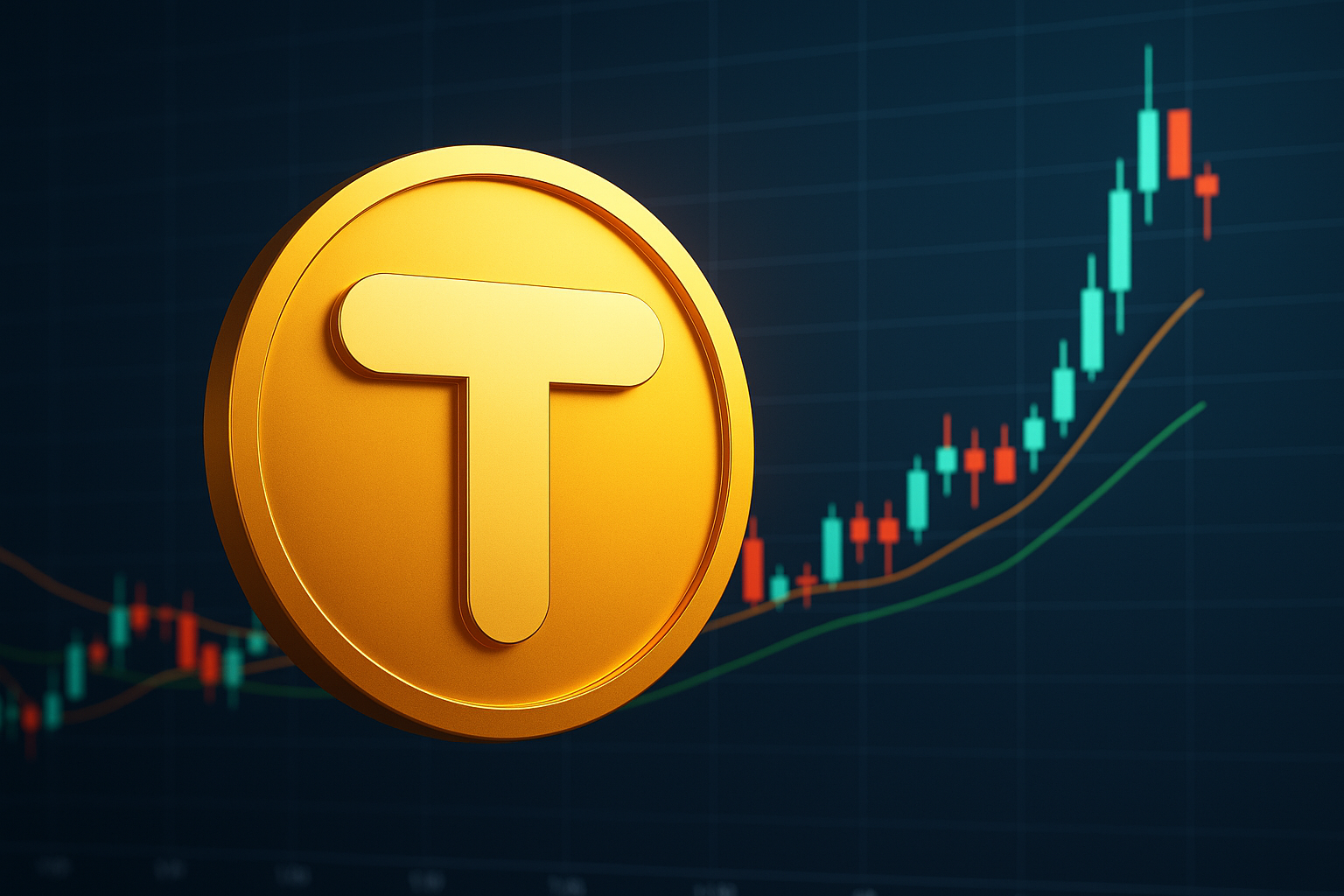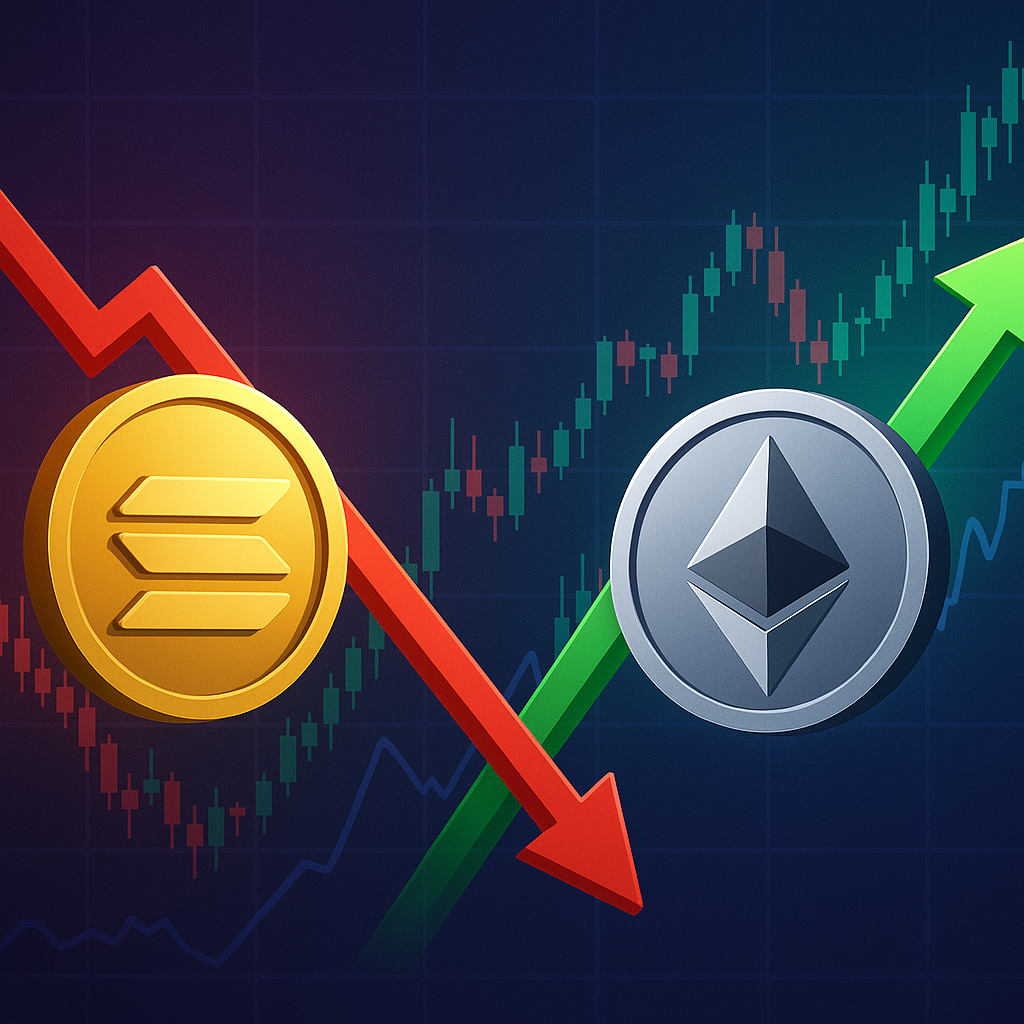Binance Research has highlighted Bitcoin’s unexpected resilience as global financial markets react to escalating trade tensions. Following sweeping U.S. import tariffs announced by former President Donald Trump, traditional assets and the broader crypto sector have faced steep declines – yet Bitcoin is quietly outperforming.
In its April 7 report, the research team pointed to Bitcoin’s relative stability amid widespread turbulence. Despite the downturn, the cryptocurrency saw a modest 1% midday gain, climbing close to $79,000. Meanwhile, the S&P 500 hovered flat, and gold futures slipped by about 1.5%.
Bitcoin has demonstrated relative strength, particularly on days when traditional risk assets have stumbled,” the report noted, citing a rise in long-term holders as a signal of growing investor conviction.
Since the tariff announcement on April 2, U.S. stock indices have dropped more than 10%, Bitcoin has fallen by around 12%, and the total crypto market has declined by roughly 25%.
The analysis concluded that Bitcoin’s next big challenge will be whether it can maintain its emerging role as a “safe-haven” asset in the face of prolonged market uncertainty.
Bitcoin Struggles to Break Away From Equity Correlation as Gold Retains Safe-Haven Status
Despite increasing attention during market turbulence, Bitcoin continues to show only limited divergence from traditional financial assets, according to a new report from Binance Research.
Over the past 90 days, Bitcoin’s correlation with gold – long considered the gold standard of safe-haven assets during times of economic distress has remained weak, averaging just 0.12. In contrast, cryptocurrency shows a stronger connection to stock market performance, with a correlation of 0.32 to major equity indices.
“While short-term volatility persists, there’s potential for Bitcoin to reestablish itself as a distinct macro asset, separate from traditional markets,” Binance noted in its analysis. “The central question now is whether BTC can revert to its historical pattern of minimal equity correlation.”
For the moment, however, gold appears to remain the go-to choice for institutional investors seeking protection in a volatile economic climate. Binance cited recent survey data revealing that 58% of fund managers prefer gold in the event of a trade conflict, while only 3% would opt for Bitcoin.
Still, Binance emphasized that the long-term outlook could shift: “Investors are closely monitoring whether Bitcoin can maintain its appeal as a decentralized, non-sovereign store of value in an increasingly protectionist global landscape.”
As geopolitical risks mount and trade uncertainty continues, the battle between Bitcoin and gold for safe-haven dominance remains one of the key narratives shaping market sentiment.

 News
News  April 7, 2025
April 7, 2025  3 min.
3 min. 









